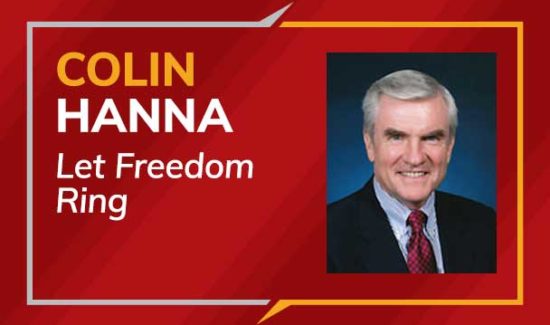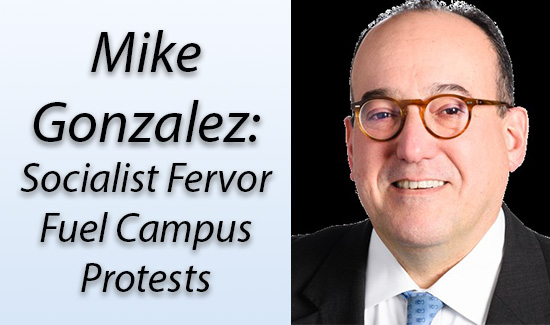Should the U.S. Continue to Fund the Ukrainian Military?
![]()
“Peace Through Strength.” That famous concept, most often associated with Ronald Reagan but originating as long ago as the Roman Emperor Hadrian, is not limited to military strength. Economic strength is also productive of peace. Economically weak nations are reluctant to challenge the strongest economies, just as militarily weak nations are reluctant to challenge the strongest militaries. Not only is strength conducive to peace, weakness is provocative. Ronald Reagan’s economic and military philosophies of strength were so effective that, together, they broke the back of the Soviet Union and won the cold war. The current administration is in the process of doing the opposite, and the opposite consequence is looming: a return to the cold war that empowers Russia.
Behind the Biden administration is the world’s largest national economy and the world’s sole remaining military superpower. The Russian economy is much weaker than most people realize: it’s behind China, of course, but also behind Japan, Germany, India, the United Kingdom and France[i]. Yet because of Vladmir Putin’s posturing, it is perceived as much larger. The weakness projected by the increasingly frail and feeble President Biden ignores our strength and empowers Putin to behave like an international bully. Nowhere in the world is that more evident than in the Russian assault on Ukraine. Some misguided isolationist Republicans are now threatening to withhold further funding of Ukraine’s military defense. That is flirting with disaster. We must not allow them to prevail.
Putin must be stopped, or he will continue to expand the footprint of Russia until it encompasses a minimum of four additional countries: Estonia, Lithuania, Moldova and Belarus, and possibly more. As the Wall Street Journal’s Chief Foreign Affairs Correspondent Yaroslav Trofimov wrote over a year ago, “a potential cease-fire leaving Russia with a large chunk of Ukraine and a capacity to … rebuild its depleted military and to prepare for new offensives would end up putting other European nations in Mr. Putin’s crosshairs. Estonia’s prime minister, Kaja Kallas, said in an interview that [Putin will come after] the Baltic countries if he succeeds in Ukraine, and this is why we have to do everything so that he doesn’t succeed in Ukraine, … If he gets away with this, nobody can feel safe.”
Earlier this year, the Journal invited students to submit 250 word essays on American aid to Ukraine. One of the published essays was from a Penn State political science student named Eric Oelhaf. Here’s a portion of that essay: “During the Cold War, the U.S. designed and procured military equipment with a specific mission in mind: large-scale conventional war in Europe. America then spent trillions of dollars after the Cold War operating and maintaining this equipment in a state of readiness. After preparing for this exact situation for several decades and praying it never comes, it’s here.
“When the U.S. sends military aid to Ukraine, it sends assets such as the Stinger, Javelin and Patriot missiles… “The U.S. could stop sending aid to Ukraine and leave our assets stateside, where they would collect dust and accrue maintenance costs. But doing so would erode America’s standing with its allies, who already doubt that the U.S. will follow through on its commitments. Instead, the U.S. could send decades-old assets overseas to help Ukraine, which would in turn prompt the U.S. to reinvigorate its military fleet to compete with growing powers.
“If we send military aid, we’ll spend some billions of dollars now to invest in peace and security for the future. If we don’t send aid, however, then we [will] continue to waste trillions of dollars… We’re not giving too much; we’re giving far too little.”
The case that Eric Oelhaf makes for continued aid is as compelling as anything I’ve seen, heard or read on our national media. Continuing to support Ukraine is not a political matter. It’s an existential one. Congress should end its bluster on both sides and follow the advice of this student. Vladimir Putin respects strength, and little else. Peace through strength works. Neo-isolationism doesn’t.
[i] SIPRI 2023 (Stockholm International Peace Research Institute)






